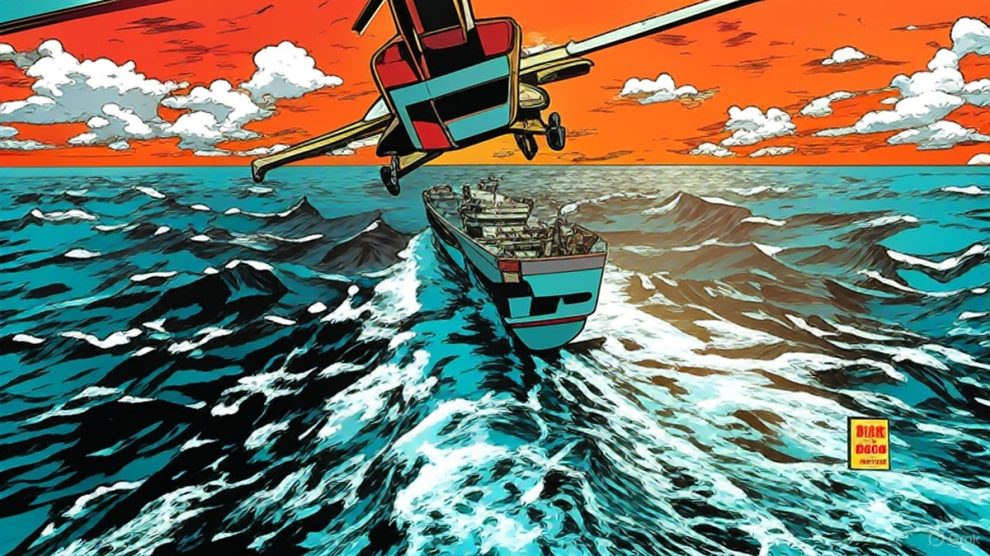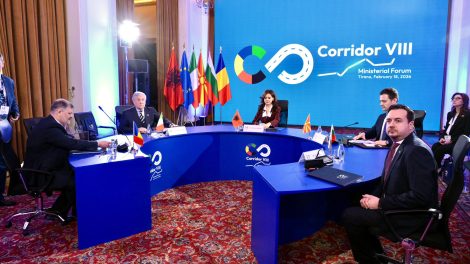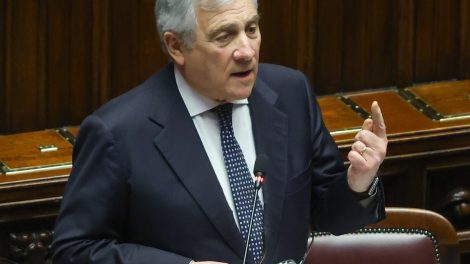Over the past two years, the Houthis have reshaped global trade flows and regional power dynamics. Their sudden halt announcement raises urgent questions about credibility, intent and regional consequences.
Italy’s angle: For Italy, the Houthi pause comes after two years of severe disruptions to the Indo-Mediterranean corridor, the maritime lifeline that links Europe to Asian supply chains.
- The rerouting of commercial traffic around the Cape of Good Hope reduced the centrality of Italian ports and weakened the competitiveness of the country’s logistics system.
- A stable de-escalation in the Red Sea would reopen strategic space for Rome, both diplomatically — through renewed engagement with Saudi Arabia, the UAE and Oman — and economically, by restoring predictable flows through Suez and reinforcing Italy’s role as Europe’s southern gateway.
Why she matters: Eleonora Ardemagni is a Senior Associate Research Fellow at ISPI, a Teaching Assistant at Università Cattolica in Milan, and an Adjunct Professor at ASERI. She is regarded as one of Europe’s foremost experts on Yemen, Gulf monarchies, and armed non-state actors.
Q: How credible is the Houthis’ announcement?
A: The Houthis’ statements should never be taken literally, because their political language is always heavily infused with instrumental and propagandistic elements. They cannot be considered credible in the way we usually understand the term. In this case, the underlying message seems to be an attempt to emphasise the role of Houthi attacks in Israel’s decision to agree to a ceasefire with Hamas.
Q: So, are the Houthis truly de-escalating, or is this pause simply a tactical recalibration?
A: A stoppage of attacks does not mean a change in strategy. The Houthis’ discourse is always highly instrumental and propagandistic, so their statements should never be taken literally. In this case, the underlying message seems to be the attempt to emphasise the role of their operations in Israel’s decision to accept a ceasefire with Hamas.
- But tactically, the pause reduces the likelihood of Israeli strikes on Yemen, which is convenient for the movement.
- It gives them time to reorganise on the ground, especially after their chief of staff was killed in an Israeli strike, to repair damaged infrastructure, and to strengthen alliances beyond Iran.”
Q: How does the halt in attacks reshape the balance between the Houthis’ external operations and internal power consolidation?
With all external fronts on standby, the Houthis are intensifying internal repression in the areas they control. They are hunting for alleged spies, targeting UN staff and even Red Cross personnel.
- This is the classic behaviour of an armed group whose coercive governance model requires constant mobilisation against an enemy — external or internal.
- When it becomes useful again to promote their objectives, including their survival, they will resume external attacks with a new or recycled pretext.
Q: If this informal truce holds, what realistic diplomatic or political openings could emerge — if any — for Yemen’s conflict?
A: Despite the UN Envoy’s efforts, I do not expect diplomatic breakthroughs — at least not in the short term.
- The government of Yemen will focus instead on two priorities: mitigating the severe economic crisis that is eroding the credibility of the Aden-based executive, and countering the smuggling of weapons and drugs destined for the Houthis. These issues are directly connected.
Q: What tools do the Yemeni government and its partners have to counter Houthi financing and arms flows, and how decisive could this become for the conflict’s trajectory?
A: Resuming oil exports from southern ports would give the government a much-needed financial lifeline: revenue to ease the electricity crisis in southern cities and pay civil servants, especially soldiers and police officers.
- To do this, securing the southern coastline is essential, since it was the Houthis who halted Yemen’s oil exports in late 2022 with two attacks on the ports.
- The regional and international partnership led by Saudi Arabia and the United Kingdom to revitalise the Yemeni Coast Guard — through funding, equipment, and training — points in the right direction.
- The Coast Guard still needs cooperation from the Saudi-led coalition to protect the ports, but it can do a great deal independently, as shown by the increasingly frequent seizures of arms shipments since early 2025.
- Countering weapons smuggling is one of the few issues on which Yemeni institutions have no internal divisions. Limiting the Houthis’ access to weapons means undermining their offensive capabilities — and also cutting into one of their revenue streams, as the expanding network with Al-Shabaab and AQAP shows.”
The bottom line: The Red Sea pause is not a turning point but a tactical manoeuvre. As Ardemagni makes clear, the Houthis are repositioning rather than retreating. Their external restraint is matched by harsher internal repression. At the same time, regional and international actors recalibrate their strategies around a deeply unresolved conflict; whether attacks resume will depend not on declarations, but on the movement’s shifting calculus of survival, leverage and opportunity.





